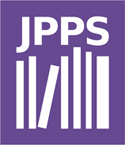Locally generated research and knowledge is key to addressing local issues in a contextually relevant way. Thousands of journals are published in the developing world but many are not widely known in their countries or beyond.
This means that these journals are less discoverable to readers – and therefore potential users – of the research. It also means that Southern journals are often not included in the lists of titles for consideration in promotion decisions, thereby reinforcing the dominance of publishing activities from Europe and North America in global scholarly communication. Southern journals are signifcantly under-represented in official international metrics. In addition, legitimate but unfamiliar journals from the developing world can wrongly be labelled as “predatory” or fake journals.
These issues create a situation that is not helpful either to Southern publishing and scholarship or to global research.
In addition to some undeniable biases in the global publishing system, some inequalities arise from the differences in how publishing happens in the North and South. In Europe and North America, scholarly communication is dominated by large, commercial, international publishing houses. These companies publish hundreds or even thousands of journals and may employ thousands of people to manage, edit, produce and market journals.
In contrast, most developing-country journals are stand-alone titles, published by research societies or by universities. The editors and editorial boards oversee the activities of the journal, including the normal functions of a publisher, frequently doing this work themselves after-hours and without payment. Career academics and even university Vice Chancellors do the day-to-day publishing work involved. They may not be fully aware of all the standards, processes, and best practices involved in publishing high-quality research journals.
About the Journals Online project and AJOL
The Journals Online (JOL) project was established by INASP in the late 1990s to redress the challenges discussed here. The Journals Online platforms aim to provide increased visibility, accessibility and quality of peer-reviewed journals published in developing countries so that the research outputs that are produced in these countries can be found, shared and used more effectively.
The JOL project involves embedding an online journal hosting platform in existing institutions in developing countries or regions. It then provides training in publishing best practices, and various other supporting services to the participating research journals hosted on the platforms. The project strengthens the capacity in the local hosting organization to eventually sustainably undertake this ongoing work themselves. In many cases, the JOL platform provides a frst opportunity for the research in a journal to be made available online.
The first JOL platform was African Journals Online (AJOL), established as a pilot in 1998 and formally launched in 2000. Since 2005, AJOL has been managed independently by a team in South Africa and the platform now hosts over 500 journals. JOL platforms in Vietnam and the Philippines are also now managed locally. The JOLs in Bangladesh, Nepal, Sri Lanka, Central America and Mongolia are also in the process of moving to local management.
More information about INASP Journals Online project can be found at www.inasp.info/journalsonline. More information about AJOL can be found at www.ajol.info.

